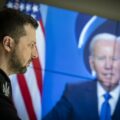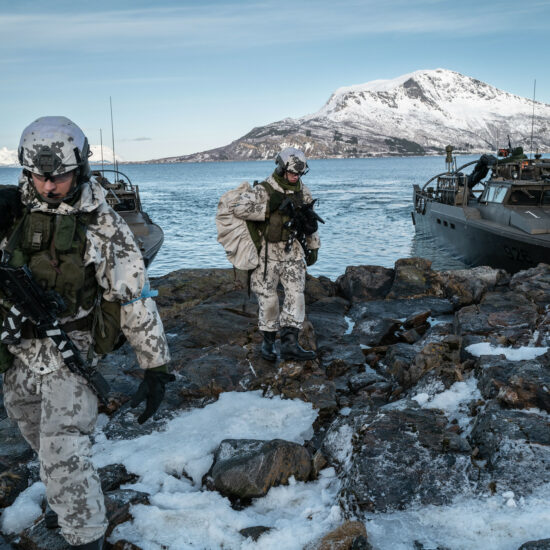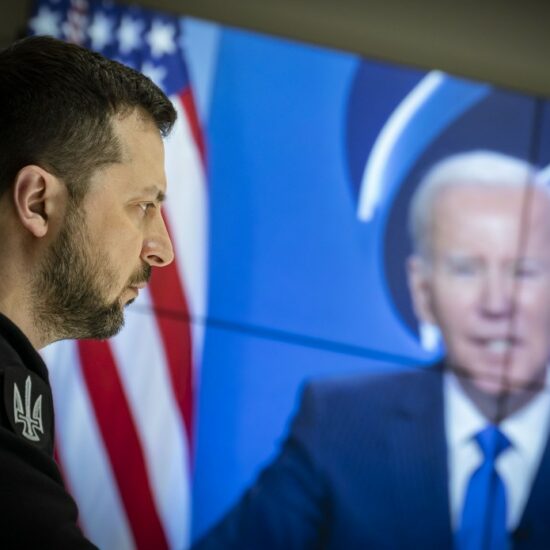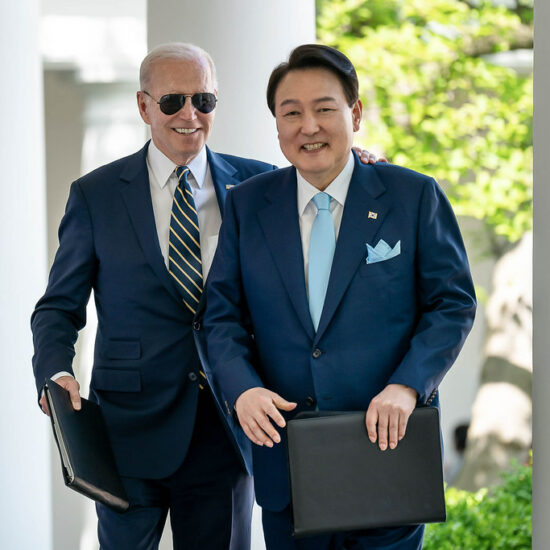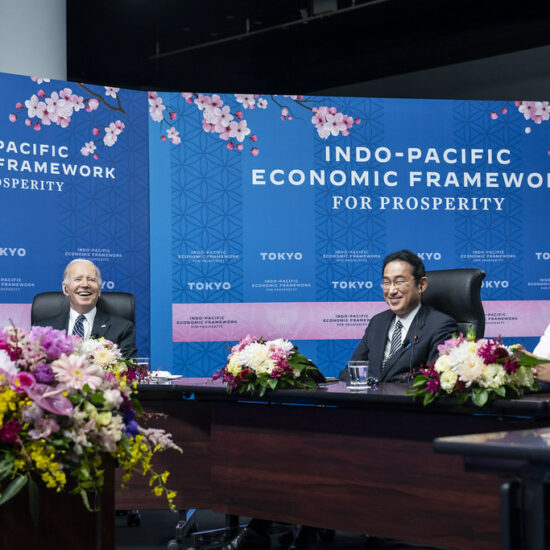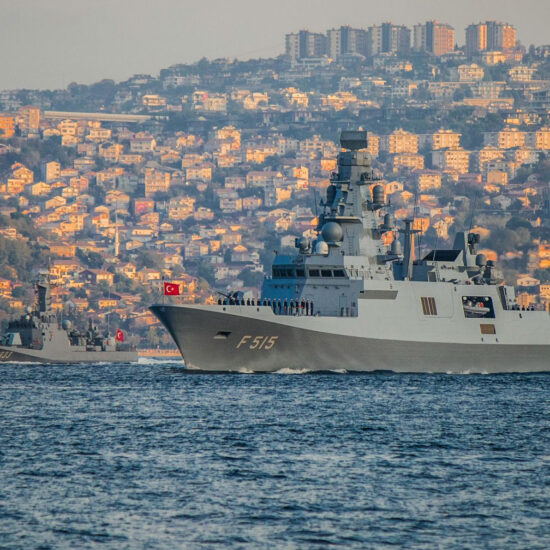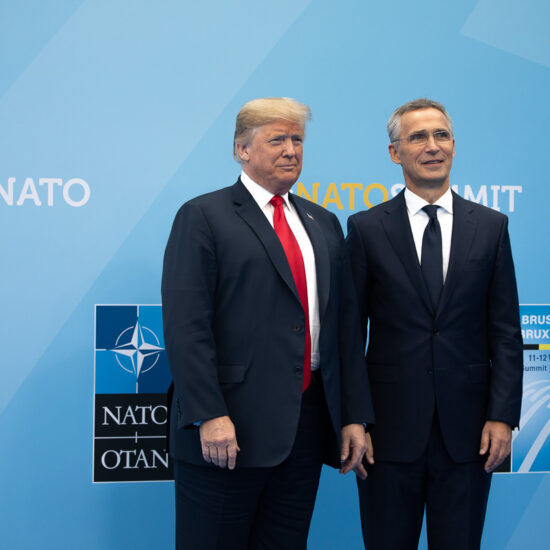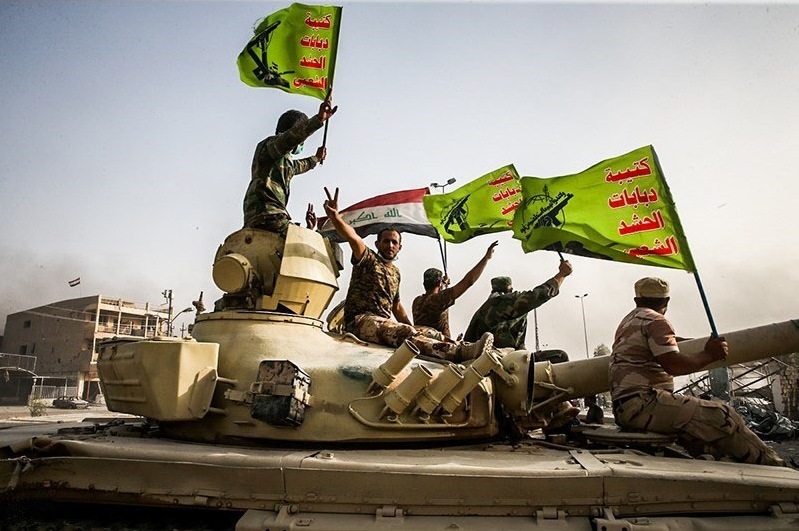
Image: Mahmoud Hosseini
By Bijan Ahmadi and Pouyan Kimiayjan
The following article was originally published in The Hill Times.
Rocket attacks by Shia militias in Iraq and Syria against American and coalition facilities, including those housing Canadian forces, have become regular occurrences that have continued into the U.S. presidency of Joe Biden. Since assuming office, the Biden administration has responded by ordering two rounds of U.S. retaliatory airstrikes against militia bases—presumably to deter these groups from further targeting of American forces.
However, the growing number of militia attacks and their increased sophistication in recent weeks demonstrate that U.S. airstrikes have failed to achieve their intended objectives. The ongoing skirmishes also pose a significant threat to all coalition forces in Iraq, including the Canadian Armed Forces (CAF) stationed in the country. It is high time for Ottawa to review its Middle East policy and withdraw the remaining CAF troops from Iraq. Otherwise, Canada risks getting dragged into geopolitical conflicts that not only endanger the lives of Canadian forces, but also do not serve our national interests.
The rise of militia attacks in Iraq can be traced back to the Trump administration’s 2018 withdrawal from the Joint Comprehensive Plan of Action (JCPOA), also known as the Iran nuclear deal, and the subsequent assassination of Iranian top general Qassem Soleimani in early 2020. While both actions were presented to the American people as means to curtail Iran’s regional influence and deter militia attacks against U.S. assets by Tehran-aligned armed groups, their actual result has been to foment regional turmoil and trigger a significant rise in the number of rocket attacks against coalition forces.
Compared to former president Donald Trump, President Biden has reportedly set an even tougher red line for regional attacks on U.S. forces, claiming that the mere targeting of American bases, regardless of their consequence in terms of injuries and casualties to U.S. military personnel, will be grounds for military retaliation. In practice, that red line appears to have had little effect on deterring the militias, and it could well encourage cycles of escalation. Ultimately, the Biden administration would have to decide if it should ignore its own ultimatum and sustain a wave of criticism from its political rivals in Washington, D.C., or to engage in a tit-for-tat with military strikes against militia groups, which can lead to a further spiral of tensions and jeopardize the ongoing nuclear negotiations with Iran.
Since 2014, Canadian forces have been deployed to Iraq as part of Operation IMPACT and the international coalition to fight the Islamic State (ISIS). In March of this year, Ottawa decided to extend its deployment for another year. In the same month, Maj.-Gen. Peter Dawe said that Canadian forces supported a major military offensive, which Iraqi and U.S. officials say killed ISIS-affiliated fighters. Yet, according to Dawe, the operation and the CAF’s direct involvement was an aberration in terms of the Canadian mission, as Iraqi forces have increasingly taken a more prominent role in the fight against ISIS. Moving forward, it is expected that the coalition troops will transfer most of their operational responsibility to the Iraqi army, which should lessen the need for CAF’s presence in Iraq.
While there is no evidence of militia groups specifically targeting Canadian forces in Iraq, any attack on coalition bases puts Canadians at risk. This is particularly important in light of the fact that the roughly 200 Canadian special forces are based near the city of Erbil—a base that has been the target of several rocket attacks. Hence, the rising militia rocket attacks and the potential for loss of life or injuries to CAF members significantly alter the cost-benefit analysis for Operation IMPACT, imperilling the mission and negating any strategic benefits from CAF presence in Iraq.
Following the emergence of ISIS and the threat it posed to Canadian security interests, Prime Minister Justin Trudeau decided to join the global coalition to fight the terrorist group. The coalition proved successful, and ISIS was defeated in 2019. After the destruction of ISIS’ so-called “caliphate” by a broad coalition that included Iraqis, regional actors such as Iran, and NATO forces, including Canadians, there was real hope for a new dawn of cooperation and engagement toward stability in the Middle East.
However, the heightening of tensions in the region, owed in part to the Trump administration’s maximum pressure campaign against Iran, did not allow for the common cause of combating ISIS to become a platform for more cooperation in the region. Moreover, Washington’s subsequent actions, including the assassination of Qassem Soleimani and Iraqi milita leader Abu Mahdi al-Muhandis, created an even greater rift with powerful factions of the Shia militia groups that are unlikely to be resolved, at least so long as U.S. forces remain present in Iraq.
Some would argue that Canada’s presence in Iraq is a key commitment to the North Atlantic alliance and that it demonstrates Ottawa’s resolve to support its allies. However, the Canadian government’s priority must be to advance Canadian national interests, first and foremost, with a duty to protect the safety and security of its citizens. Moreover, Canada has already demonstrated its commitment to the transatlantic alliance through its role in protecting NATO’s eastern flank. In the current shifting geostrategic environment defined by the spectre of great power politics, it is vital for Canadian forces to pivot and invest in key regions that are critically important to Canada’s national interests, particularly the Arctic and the Pacific—both long neglected by Ottawa.
Moving forward, Canada must encourage de-escalation in Iraq within the NATO framework. Simultaneously, in light of recent rocket attacks and the fulfillment of the coalition’s main objective to defeat ISIS, Canada must withdraw the remaining CAF troops from Iraq, disentangling Ottawa from the ongoing Tehran-Washington rivalry. Instead, Canada could focus on providing advisory, training, and capacity-building support through its regional forces based outside of Iraq in accordance with its directive under Operation IMPACT until the expiry of the current mission in March 2022.

